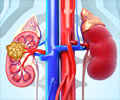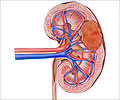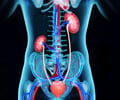Understanding a variety of factors that are linked to cancer risk can help prevent cancer and screening decisions for patients and can provide insights into the underlying causes of cancer.

TOP INSIGHT
The risk of developing kidney and thyroid cancer is high when a patient with kidney failure is on dialysis.
To investigate, Elizabeth Yanik, PhD, ScM (National Cancer Institute) and her colleagues evaluated information on 202,195 kidney transplant candidates and recipients by linking the Scientific Registry of Transplant Recipients to various US population-based cancer registries.
For a number of cancers, the team observed clear patterns of risk that corresponded to different treatment intervals. For example, risk of kidney and thyroid cancers was high across all intervals, but the risk was particularly heightened when individuals were on dialysis.
Conversely, risk of non-Hodgkin lymphoma, melanoma, lung cancer, and certain skin cancers was highest following kidney transplantation and—for those who experienced it— prior to transplant failure. This may have been due to the effects of immunosuppressant medications that are needed while living with a functioning kidney transplant.
These findings reveal that kidney dysfunction and immunosuppressant medications can have important effects on cancer incidence in patients with kidney failure.
In an accompanying editorial, Wai Lim, PhD (University of Western Australia) and Steven Chadban, PhD (University of Sydney) noted that “the epidemiologic insights provided by Yanik et al. may have important implications for the pathogenesis and mechanism of cancer development in patients.”
Source-Newswise
 MEDINDIA
MEDINDIA




 Email
Email










